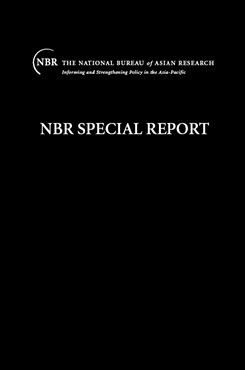The Future of U.S.-Japan Economic Relations
Economic relations between Japan and the United States have gone through several major twists in the last decade or more. Much of America’s focus is no longer on Japan and bilateral economic trade problems.
Economic relations between Japan and the United States have gone through several major twists in the last decade or more. Throughout the 1980s, Japan’s exports and the overall economy boomed while the economy of the United States sagged. The result was a gaping bilateral trade difference and a series of testy economic confrontations aimed at reducing it. The so-called “voluntary export restraints,” the market-oriented sector-selective (MOSS) talks, the Structural Impediments Initiative, the semiconductor agreement, and the Plaza Accord were among the most prominent and contentious. The climate changed substantially by the early 1990s with the breakdown of the Framework Accord. Moreover, Japan’s asset bubble burst, ushering in thirteen years of torpid economic performance. In contrast, the U.S. economy boomed as a result of its quick transformation from a manufacturing to a service base, one that was heavily dependent on successfully taking a global lead in information technologies.
The Clinton administration pursued policies of military reduction, concentrating instead on domestic economic revitalization and global economic multilateralism. The latter was particularly successful with the negotiation of the Uruguay Round, the North American Free Trade Agreement (NAFTA), the Free Trade Area of the Americas (FTAA), and the embrace of Asia-Pacific Economic Cooperation (APEC) in Seattle in 1993. The United States also pressed for improved economic relations with China, which culminated in the accession of both Taiwan and China to the World Trade Organization (WTO) in December 2001. APEC agreed to pursue “free and open trade and investment” across the Asia-Pacific—by 2010 for advanced economies, and by 2020 for developing economies. In short, much of America’s focus was no longer on Japan and bilateral economic trade problems.


